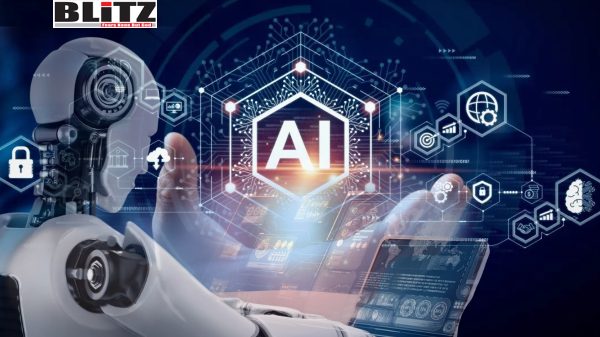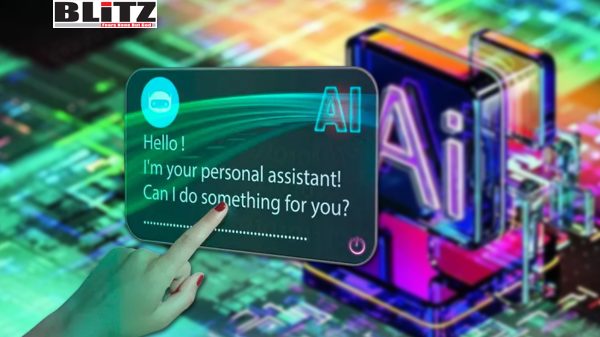Role of AI in vocational education and training
- Update Time : Wednesday, February 28, 2024

Artificial Intelligence (AI) is poised to revolutionize the landscape of Vocational Education and Training (VET), offering transformative solutions to longstanding challenges while ushering in a new era of educational innovation. In a recent report by ReadyTech, it was revealed that only 20 percent of surveyed institutions have integrated AI into their digital strategies, signaling both a pressing need and a vast opportunity for widespread adoption within the VET sector.
The Voice of VET 2024 report underscores the urgency for institutions to embrace digital transformation, with just 44% acknowledging the necessity of a formal digital strategy. This gap highlights the imperative for VET providers to leverage AI technologies in addressing critical issues such as staffing shortages, skills mismatches, and evolving training demands.
Highlighting the ongoing struggle within the sector, Trevor Fairweather, General Manager for Education at ReadyTech, underscores the formidable hurdle of staffing. In the face of a fiercely competitive labor market and escalating living expenses, the recruitment and retention of skilled personnel pose significant challenges. This emphasizes the critical importance of AI in not only streamlining administrative tasks but also in maximizing resource utilization within vocational education and training institutions.
The introduction of the National Skills Agreement is heralded as a significant step towards bolstering Australia’s workforce, yet Fairweather cautions that addressing longstanding workforce shortages is essential for realizing its full potential. In this context, AI emerges as a key enabler for enhancing operational efficiency and driving educational excellence.
While optimism abounds regarding financial outlooks, concerns linger regarding the adequacy of funding for digital transformation initiatives. This shortfall in investment poses a significant challenge as the VET sector strives to remain relevant in an era characterized by shifting student preferences and emerging technologies.
In the midst of a burgeoning appetite for accredited short courses and micro-credentials, conventional VET Certificate programs find themselves grappling with dwindling enrollment numbers. This trend has sparked a critical reassessment of educational offerings and delivery approaches. The Future Skills Organization (FSO) emphasizes the imperative for establishing more transparent pathways from VET courses to careers in technology-related fields. This underscores the necessity for adaptability in meeting the shifting demands of the market landscape.
In this dynamic landscape, digital transformation emerges as a linchpin for addressing administrative challenges and enhancing the student experience. With a resounding 73% of respondents prioritizing improvements in the student journey and 71% emphasizing the need for increased employee productivity, there is a growing recognition of AI’s role in driving educational excellence and institutional competitiveness.
AI holds promise in transforming various facets of VET delivery, from personalized learning experiences to streamlined administrative processes. With 57% of respondents foreseeing AI’s impact on course content delivery and significant expectations for its influence on training management and student engagement, the transformative potential of AI cannot be overstated.
Moreover, AI offers invaluable support in improving student retention and completion rates, critical metrics for educational success. By leveraging data analytics and AI technologies, institutions can proactively identify at-risk students, personalize interventions, and optimize learning outcomes.
However, realizing the full potential of AI in VET requires strategic investment, robust planning, and a cultural shift towards embracing innovation. As Marc Washbourne, CEO of ReadyTech, asserts, a high-performing VET sector is essential for fostering social equity and driving economic prosperity. By embracing digital transformation and AI capabilities, institutions can position themselves as leaders in educational innovation, equipping students with the skills needed to thrive in an increasingly competitive job market.
In summary, the integration of AI into VET presents vast potential for enhancing efficiency, enriching learning outcomes, and effectively addressing the evolving demands of both students and employers. As the sector confronts various challenges and embraces new opportunities, the adoption of AI-driven innovation stands as a cornerstone in shaping a more promising future for vocational education and training. Through strategic investment and a steadfast dedication to excellence, the VET sector is poised to unlock the full capabilities of AI, driving educational advancement and empowering learners to thrive in the digital era.

















